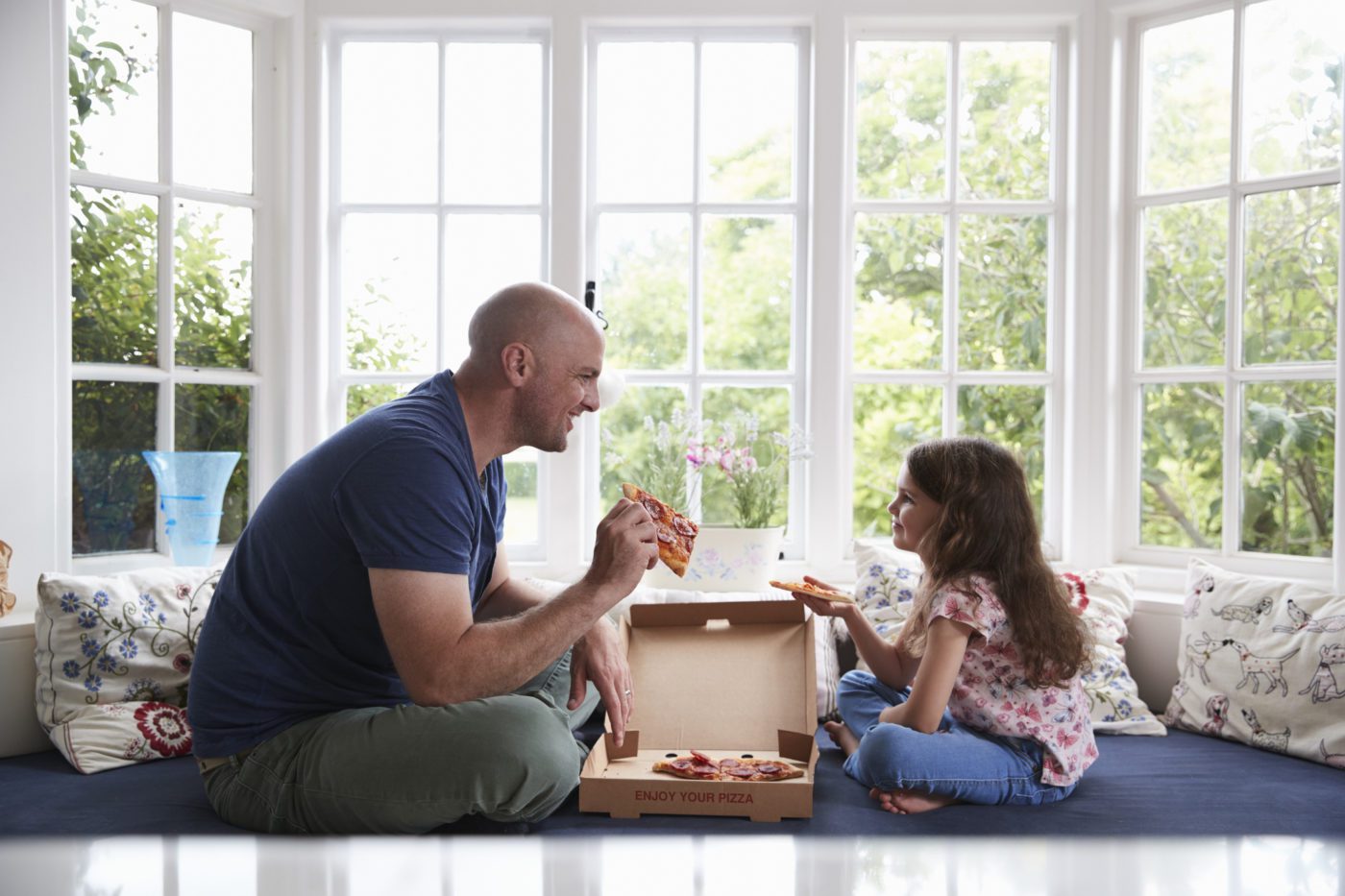We were all tired, so our family grabbed fast food and decided to watch TV while we ate. The one show we can all agree on these days is LEGO Masters. It’s one of those reality competition shows, in case you haven’t seen it. At the end of each episode, a team of two is always eliminated. “Are you crying?” my daughter said to her mom. I looked over and saw my wife tearing up. A team she really liked had just been eliminated. Not one to hide her emotions, she owned it immediately: “Yes! It’s sad.” My daughter turned and said, “I don’t think I’ve seen Dad cry ever.” I was shocked. It’s not like I walk around crying all the time, but I do cry quite a bit. As I thought about it, I realized I’d been hiding it. It wasn’t intentional—it was more of a natural reaction, shielding myself when I felt vulnerable.
The problem is that my kids need to see my vulnerability. It’s good for them. There are several things we either consciously or subconsciously shield our kids from seeing, but doing so is a disservice. There are things to teach your child that are best for kids to observe. Here are 5 things you need to let your kids see.
1. Your Emotions
If you’re anything like me, the one emotion you show easily is anger. However, sadness, hurt, and grief—and your tears—are all things our kids need to see. We should be in control of our emotions, but we shouldn’t hide them. When our kids see our vulnerability, it communicates that vulnerability is not weakness. Ultimately, it is a key ingredient for intimacy.
2. Opposing Worldviews and Lifestyles
Are you afraid your kids will see validity in a view you are opposed to or take on a lifestyle you disagree with or maybe find immoral? Join the club. I think most parents would put that as a top concern. It’s wise to protect your kids from concepts, ideas, and images they may not be mature enough to handle. But shielding your kids from opposing worldviews and lifestyles can give those views more credibility, or at least make your own point of view look shakier. This is especially true when you present a strawman version of an opposing worldview. Your kids will see right through you, eventually. If you’re living fully in truth, hope, and love, then there’s nothing to fear. Present the honest versions of all.
3. World News
Sometimes it’s difficult for me to turn on the news. There are so many horrific stories. But what’s going on in the world is one of the most valuable things to teach your child. Our kids need to be educated on different cultures and their struggles. If you are nervous about your kids seeing content that is too mature, there are news services specifically designed for children such as World Watch.
4. Arguing and Reconciliation
Arguing and reconciliation are important things to teach your child. Some people will say it’s not good to fight with your spouse in front of your kids. I understand the reasoning, however, I think it’s beneficial for them to see you fight, as long as you tell them afterward that you’ve reconciled (or reconcile in front of them). When you argue with your wife, it’s going to create anxiety in your kids. Often, we start arguing in front of the kids and then take the argument to a private place. We may reconcile, but if the kids never see it, they are left in a state of anxiety. So if they don’t see the reconciliation, tell them about it. When our kids see us handle conflict in a healthy way, we train them for how to handle their own relational struggles.
5. God’s Provision
Have you ever unexpectedly received something you needed? I read a story about a man in ministry who was out of money. He prayed and hoped he would receive a donation check so he and his wife could buy food. No one was aware of their situation. He watched the mailbox. The postman came and left, but no check. Then there was a knock at the backdoor. One of his supporters showed up with groceries. He said he was sitting in his office and just felt like they needed food. Not only have I heard many incidents like this from friends, but I’ve experienced them firsthand.
It’s easy to chalk up stories like this to coincidence or luck. Well, I personally don’t believe in luck. Matthew 6:26 says, “Look at the birds of the air; they do not sow or reap or store away in barns, and yet your heavenly Father feeds them. Are you not much more valuable than they?” God provides abundantly for us, and when we see it, we sense our value and feel loved. Have you seen God’s provision for you? How did it make you feel? When you see it, point it out to your kids.
Sound off: What are some other things to teach your child by observing?












Huddle up with your kids and ask, “What do you feel when your mom and I argue?”